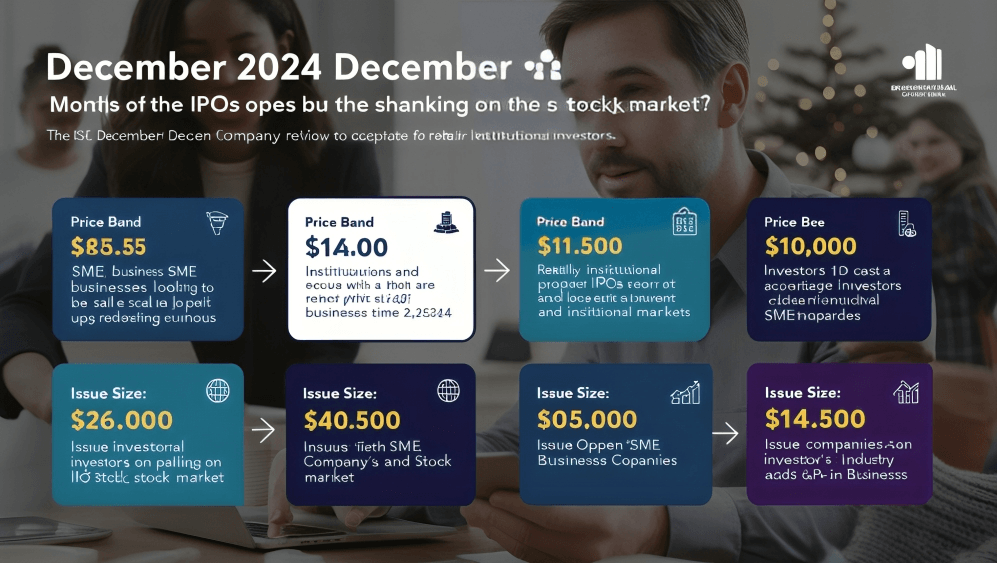This article delves into the upcoming “Encyclopedia Britannica IPO,” analyzing the potential impact on the market, key details of the offering, and its implications for investors. It explores the company’s history, financial outlook, and what investors can expect from this significant event.
The Encyclopedia Britannica IPO Explained: A Game-Changer for Investors in 2025

Table of Contents
Introduction
Company Overview
IPO Details
Financials & Valuation
IPO GMP & Market Trends
Competitor Analysis
Future Growth Prospects
Risks and Challenges
Conclusion
FAQs
The Encyclopedia Britannica IPO has captured the attention of investors and market enthusiasts around the world. With its long-standing reputation as a leader in educational resources, Britannica is now preparing to go public, and the upcoming IPO could be one of the most significant financial events of the year.
In this article, we’ll provide a comprehensive overview of the Encyclopedia Britannica IPO, covering everything from the company’s history and market positioning to the risks and opportunities investors should consider. By the end of this guide, you’ll have a complete understanding of what the IPO means for potential investors and the future of the company.
What Is the Encyclopedia Britannica IPO?
The Encyclopedia Britannica IPO marks a significant shift for the company, which has traditionally operated as a private entity. This IPO will enable Britannica to raise capital by offering shares to the public for the first time, allowing investors to become shareholders in a globally recognized educational resource. Britannica is known for its trusted content across various formats, including books, digital platforms, and educational software, making it a strong player in the educational sector.
- Company’s History: Encyclopedia Britannica was founded in 1768 and has evolved from printed volumes to digital content, making it one of the oldest and most prestigious educational brands in the world. In recent years, it has embraced a digital-first model, expanding its reach through online platforms and partnerships with educational institutions.
- IPO Impact: The Encyclopedia Britannica IPO will have a significant impact on the market, as it could set the tone for other tech-driven educational companies considering going public. Britannica’s shift to a public company could also influence its brand perception, market share, and the strategic direction of its operations.
For more on upcoming IPOs and market predictions, check out our latest article on upcoming IPOs in 2025.
Why Is the Encyclopedia Britannica IPO Gaining Attention?
The Encyclopedia Britannica IPO is drawing significant attention for several reasons, including its historical importance, global brand recognition, and the growing demand for educational content in the digital age.
- Global Reach: Britannica is well-known around the world for its commitment to quality, and its educational products are used by millions of students, teachers, and professionals. This massive user base adds immense value to the company as it enters the public market. Its presence in over 80 countries gives it a competitive edge in the global market for educational resources.
- Investor Sentiment: Investors are paying close attention to the Encyclopedia Britannica IPO because the education technology (EdTech) sector has seen a surge in interest in recent years. The rise of e-learning platforms and digital classrooms has significantly boosted demand for educational tools, making Britannica’s IPO highly anticipated.
- Brand Loyalty: Britannica’s trusted reputation among educators and its longevity in the market gives it a unique advantage when compared to other education technology companies. This established credibility could translate into investor confidence, making the IPO an attractive opportunity for those seeking long-term growth.
Key Details About the Encyclopedia Britannica IPO
To make informed investment decisions, it’s important to understand the key details about the Encyclopedia Britannica IPO, including pricing, size, and the overall timeline.
- IPO Pricing: The exact pricing for the Encyclopedia Britannica IPO will be determined as part of the roadshow process. Typically, the pricing reflects the company’s valuation and expected demand for shares. Market analysts predict that Britannica’s valuation could range from $5 billion to $8 billion, depending on investor interest.
- Offer Size: Britannica plans to offer a substantial number of shares to the public, which will help raise capital for future expansions and digital initiatives. The exact number of shares available will depend on the final pricing and the company’s strategic goals.
- Timeline: The Encyclopedia Britannica IPO is expected to launch in the second half of 2025, with the company planning to list on a major stock exchange like the NYSE or NASDAQ. This timeline could change depending on market conditions and regulatory approvals.
Potential Risks and Opportunities in the Encyclopedia Britannica IPO
As with any investment, there are both risks and opportunities associated with participating in the Encyclopedia Britannica IPO. Investors must carefully weigh these factors before deciding to purchase shares.
- Risks:
- Market Volatility: The IPO market is inherently volatile, and external factors like economic downturns or political instability could impact the stock price post-listing.
- Competitor Pressure: Although Britannica is a leader in the educational content space, it faces increasing competition from new EdTech startups, free online resources like Wikipedia, and other educational platforms that offer similar services at a lower cost.
- Opportunities:
- Growth Potential: As Britannica continues to grow its digital presence, there is potential for significant revenue growth. Expanding into new markets and leveraging technology to enhance educational offerings could provide a solid return on investment.
- Brand Strength: Britannica’s brand is synonymous with quality, and this reputation can translate into customer loyalty and long-term revenue generation.
What is the Encyclopedia Britannica IPO?
Encyclopedia Britannica, the world’s oldest continuously published encyclopedia, is preparing for an Initial Public Offering (IPO) to transition from a privately held to a publicly traded company. This strategic move aims to raise capital, enhance its market presence, and provide public investors with an opportunity to own shares in the esteemed educational publisher.
Understanding the Company’s History and Business Model
Founded in 1768 in Edinburgh, Scotland, by Colin Macfarquhar and Andrew Bell, Encyclopedia Britannica has evolved from a traditional print encyclopedia to a leading digital educational resource. Over the centuries, it has expanded its offerings to include various educational products and services, such as the Merriam-Webster dictionary and Britannica.com, a comprehensive online platform launched in 1999. Wikipedia
The company’s business model has shifted from direct sales of print editions to a diversified approach encompassing digital subscriptions, educational tools, and partnerships with educational institutions. This transition reflects Britannica’s commitment to adapting to the digital age while maintaining its reputation for reliable and authoritative content.
How the IPO Will Impact the Market
The upcoming IPO is expected to have several significant impacts on the market:
- Valuation and Investor Interest: Reports indicate that Britannica is seeking a valuation of approximately $1 billion for the IPO. Bloomberg
This valuation reflects the company’s strong brand equity and potential for growth in the educational technology sector. - Market Positioning: By going public, Britannica aims to strengthen its financial position, enabling further investment in digital innovation and expansion of its product offerings. This move is anticipated to enhance its competitive edge in the rapidly evolving ed-tech industry.
- Investor Opportunities: The IPO provides investors with an opportunity to participate in the growth of a historic company that has successfully transitioned into the digital era. Given Britannica’s established reputation and strategic initiatives, the IPO is expected to attract significant interest from both institutional and individual investors.
In summary, the Encyclopedia Britannica IPO marks a pivotal moment in the company’s history, offering new opportunities for growth and investment while reinforcing its commitment to delivering quality educational content to a global audience.
Why is the Encyclopedia Britannica IPO Gaining Attention?
The anticipated initial public offering (IPO) of Encyclopedia Britannica has garnered significant attention from investors and industry observers. This interest stems from Britannica’s longstanding reputation as a leading educational resource and its strategic move to enter the public market. The Encyclopedia Britannica IPO has become a focal point for those looking to invest in companies that blend education with technological innovation, further enhancing its appeal in the market.
The Global Reach and Influence of Encyclopedia Britannica
Encyclopedia Britannica, established in 1768, has evolved into a globally recognized educational institution. Its extensive digital platform offers a vast array of articles, videos, and interactive content, serving millions of users worldwide.
This global reach positions Britannica as a formidable player in the educational technology sector, appealing to investors interested in companies with a broad and engaged user base. The upcoming Encyclopedia Britannica IPO is seen as a way for the company to expand its influence and continue its trajectory of growth in the education sector.
In January 2024, Britannica filed confidentially for an IPO, signaling its intent to expand its influence and capitalize on its established brand. According to Reuters, the Encyclopedia Britannica IPO is expected to generate significant interest in the tech-education space. Reports from March 2024 indicated that Britannica was seeking a valuation of approximately $1 billion for the IPO, reflecting its substantial market presence and growth potential.
Bloomberg has also highlighted the growing investor optimism surrounding the Encyclopedia Britannica IPO, noting its impact on the educational tech sector.
Investor Sentiment and Market Expectations
Investor sentiment towards IPOs has been notably cautious in recent years, influenced by market volatility and economic uncertainties. However, the resurgence of IPO activities in 2024, with over $41 billion raised compared to $24 billion in 2023, indicates a renewed investor appetite for public offerings. Investopedia has reported on this shift, with many pointing to the anticipated Encyclopedia Britannica IPO as a key example of investor confidence in high-quality educational tech companies.
The anticipated IPO of Encyclopedia Britannica is expected to attract significant investor interest due to its established brand, global reach, and the growing demand for educational technology solutions.
Analysts anticipate that Britannica’s entry into the public market through its IPO could set a positive precedent for future IPOs in the education sector, potentially leading to increased investments and innovation within the industry. With its vast content library and loyal user base, the Encyclopedia Britannica IPO represents a promising opportunity for both the company and potential investors.
Key Details About the Encyclopedia Britannica IPO
Encyclopedia Britannica, a renowned educational publisher, is preparing for its initial public offering (Encyclopedia Britannica IPO). Below are the key details regarding the pricing, offer size, and anticipated timeline of this significant event.
Pricing and Offer Size of the Encyclopedia Britannica IPO
Encyclopedia Britannica is reportedly aiming for a valuation of approximately $1 billion in its upcoming Encyclopedia Britannica IPO. The company has not yet determined the exact number of shares to be offered or the price range for the offering. These details are expected to be finalized as the Encyclopedia Britannica IPO process progresses. PYMNTS
The valuation reflects Britannica’s strong position in the educational publishing sector, with its iconic products like the Encyclopaedia Britannica and Merriam-Webster dictionary. The company has also expanded into digital education platforms, enhancing its market presence ahead of the Encyclopedia Britannica IPO.
Timeline and Upcoming Encyclopedia Britannica IPO Events
Encyclopedia Britannica has initiated the Encyclopedia Britannica IPO process by confidentially submitting a draft registration statement to the U.S. Securities and Exchange Commission (SEC) in January 2024. The company has indicated that the Encyclopedia Britannica IPO could take place as early as June 2024, depending on market conditions and the completion of the SEC’s review process. PYMNTS
As of now, the specific dates for the Encyclopedia Britannica IPO have not been confirmed. Investors and stakeholders are advised to monitor official communications from Britannica for updates on the offering’s timeline and related events.
Please note that the information provided is based on reports available up to March 2024. For the most current details, refer to official announcements from Encyclopedia Britannica and the U.S. Securities and Exchange Commission.
Potential Risks and Opportunities in the Encyclopedia Britannica IPO
The upcoming Encyclopedia Britannica IPO presents both significant opportunities and notable risks for investors. Understanding these factors is crucial for making informed investment decisions, especially as the Encyclopedia Britannica IPO could reshape the company’s future.
Risks for Investors to Consider
- Market Volatility: The stock market’s inherent fluctuations can lead to unpredictable share prices post-Encyclopedia Britannica IPO. Investors may experience short-term losses if the stock’s performance declines after the offering, which is a risk often associated with new public companies.
- Regulatory Scrutiny: As a publicly traded company following the Encyclopedia Britannica IPO, Britannica will be subject to stringent regulatory requirements, including regular financial disclosures and compliance with securities laws. Non-compliance or regulatory changes could adversely affect the company’s operations and stock value after the Encyclopedia Britannica IPO.
- Operational Challenges: Transitioning from a private to a public entity often involves significant operational adjustments. These changes can strain resources and potentially impact the company’s performance during the adjustment period following the Encyclopedia Britannica IPO.
- Competitive Pressures: The educational technology sector is highly competitive, with numerous players vying for market share. Britannica must continually innovate to maintain its position after the Encyclopedia Britannica IPO, and failure to do so could affect its profitability.
- Economic Sensitivity: Economic downturns can lead to reduced spending on educational resources, directly impacting Britannica’s revenue streams post-Encyclopedia Britannica IPO. This sensitivity could be a critical factor in the company’s ability to meet investor expectations.
Growth Opportunities Post-IPO
- Access to Capital: The Encyclopedia Britannica IPO will provide Britannica with substantial funds, enabling investment in new technologies, content development, and global expansion efforts. This capital infusion can help Britannica strengthen its competitive position.
- Enhanced Brand Visibility: Public listing through the Encyclopedia Britannica IPO can increase brand recognition, attracting new customers and partners, thereby expanding Britannica’s market reach and influence in the educational sector.
- Strategic Acquisitions: With additional capital from the Encyclopedia Britannica IPO, Britannica can pursue acquisitions of complementary businesses, enhancing its product offerings and market presence, which could significantly benefit its long-term growth.
- Talent Attraction and Retention: Public companies, especially after a successful Encyclopedia Britannica IPO, often have more resources to offer competitive compensation packages, including stock options. This can help attract and retain top talent to further innovate and grow the company.
- Market Expansion: The increased financial resources and brand recognition post-Encyclopedia Britannica IPO can facilitate entry into new markets, both geographically and demographically, diversifying Britannica’s customer base and boosting its overall market presence.
In summary, while the Encyclopedia Britannica IPO presents certain risks, it also offers substantial growth opportunities. Investors should carefully weigh these factors in alignment with their investment goals and risk tolerance, especially considering the potential impact of the Encyclopedia Britannica IPO on the company’s future.
Encyclopedia Britannica IPO and Its Competitive Landscape
Encyclopedia Britannica’s decision to pursue an initial public offering (IPO) marks a significant milestone in the educational technology sector. As the company prepares to go public with its Encyclopedia Britannica IPO, understanding its competitive positioning and broader industry projections is essential for investors and stakeholders. The Encyclopedia Britannica IPO is not just a financial event but a key moment that will shape the future of educational content and digital learning platforms.
Investors and industry watchers alike are keeping a close eye on how this Encyclopedia Britannica IPO will impact the education sector as a whole.
How Britannica Stands Out from Competitors
Encyclopedia Britannica distinguishes itself in several key areas:
- Established Brand Legacy: With a history spanning over 250 years, Encyclopedia Britannica has built a reputation for reliability and trustworthiness in information dissemination. This legacy positions the company uniquely as it moves toward its Encyclopedia Britannica IPO.
- Diverse Product Portfolio: Beyond its iconic encyclopedia, Britannica owns Merriam-Webster, a leading dictionary publisher, and Britannica Education, which offers educational resources and tools. These diverse assets add immense value to the Encyclopedia Britannica IPO, making it an attractive proposition for investors.
- Digital Transformation: The company has successfully transitioned to digital platforms, providing online learning solutions and AI-driven educational tools, such as Melingo AI, an artificial intelligence platform used in language learning and dictionaries. This digital shift is one of the factors making the Encyclopedia Britannica IPO particularly timely in the rapidly changing tech landscape.
- Global Reach: Encyclopedia Britannica’s content is accessible worldwide, catering to a diverse audience and educational institutions across various regions, enhancing its appeal to global investors considering the Encyclopedia Britannica IPO.
Future Projections for the Industry
The educational technology sector is poised for significant growth, influenced by several factors that could play a role in the Encyclopedia Britannica IPO:
- Increased Demand for Online Learning: The shift towards digital education, accelerated by global events, has led to a surge in demand for online learning platforms and resources. This trend supports the value proposition of Encyclopedia Britannica’s IPO, as its digital learning solutions are well-positioned to benefit.
- Advancements in AI and EdTech: Innovations in artificial intelligence are transforming educational tools, offering personalized learning experiences and efficient content delivery. As Encyclopedia Britannica embraces these advancements, the company’s IPO stands to gain from the growing demand for AI-powered educational technology.
- Market Expansion: Emerging markets are investing heavily in education, presenting new opportunities for companies like Encyclopedia Britannica to expand their reach. The global expansion of educational technologies makes the Encyclopedia Britannica IPO a key event for both local and international stakeholders.
- Regulatory Developments: Changes in educational policies and regulations can impact the adoption and integration of educational technologies. Encyclopedia Britannica’s IPO could be influenced by how regulatory frameworks evolve in response to increasing digital education needs.
In summary, Encyclopedia Britannica’s IPO is positioned in a favorable market environment, driven by strong strategic initiatives and a thriving industry. With its legacy, diverse product portfolio, and commitment to innovation, Encyclopedia Britannica IPO presents an exciting opportunity for investors as it looks to continue its leadership in the educational technology sector.
How to Invest in the Encyclopedia Britannica IPO
Encyclopedia Britannica, renowned for its educational resources, has filed for an Initial Public Offering (IPO) in the United States, aiming for a valuation of approximately $1 billion Bloomberg
Steps to Participate in the IPO
- Open a Brokerage Account: To invest in the Encyclopedia Britannica IPO, you must have an account with a brokerage firm that offers access to IPOs. Many online brokers provide this service, but eligibility requirements may vary. Investopedia
- Meet Eligibility Criteria: Brokerages often have specific criteria for participating in IPOs, such as minimum account balances or trading activity. Ensure you meet these requirements to be considered for allocation.
- Express Interest: Once eligible, you can express interest in the IPO through your brokerage’s platform. This typically involves submitting an indication of interest (IOI), indicating the number of shares you wish to purchase. Fidelity
- Await Allocation: Due to high demand, not all investors may receive the full number of shares requested. Allocations are determined based on various factors, including the size of the offering and investor demand.
- Place Your Order: If allocated shares, you can place your order through your brokerage account. Be prepared for the possibility of receiving fewer shares than requested.
Investment Strategies for Potential Shareholders
- Conduct Thorough Research: Before investing, review the company’s financial health, growth prospects, and the details provided in the IPO prospectus. This document offers insights into the company’s operations, risks, and financial statements.
- Assess Your Risk Tolerance: Investing in IPOs can be volatile. Evaluate your financial situation and risk tolerance to determine if this investment aligns with your portfolio.
- Diversify Your Portfolio: Avoid allocating a significant portion of your investments to a single IPO. Diversification helps mitigate risk and can lead to more stable returns over time.
- Stay Informed: Keep abreast of market conditions and any news related to Encyclopedia Britannica. This information can influence the stock’s performance post-IPO.
Participating in the Encyclopedia Britannica IPO presents an opportunity to invest in a storied educational institution. However, it’s essential to approach this investment with due diligence and a clear understanding of the associated risks.
Encyclopedia Britannica IPO: What to Expect After the Listing
Encyclopedia Britannica, a renowned publisher and education technology company, has filed for an initial public offering (IPO) in the United States, aiming for a valuation of approximately $1 billion Bloomberg
The Short-Term and Long-Term Market Performance
Short-Term Outlook:
In the immediate aftermath of the IPO, market performance will be influenced by investor sentiment, market conditions, and the company’s financial health. Given Britannica’s established brand and diverse portfolio including the Merriam-Webster dictionary and Melingo AI the IPO is expected to attract significant investor interest. However, the actual market performance will depend on factors such as the pricing of the shares, the overall market environment at the time of listing, and investor confidence in the company’s prospects.
Long-Term Outlook:
Over the long term, Britannica’s market performance will hinge on its ability to adapt to the evolving education technology landscape. The company’s strategic initiatives, such as expanding its digital offerings and leveraging artificial intelligence through platforms like Melingo AI, will be crucial. Additionally, Britannica’s commitment to innovation and maintaining the quality of its educational content will play a significant role in sustaining investor confidence and ensuring long-term growth.
Potential Post-IPO Developments
Post-IPO, Britannica may explore several strategic avenues to enhance its market position:
- Expansion of Digital Services: Investing in and expanding digital platforms can cater to the growing demand for online education and resources.
- Strategic Partnerships: Collaborations with educational institutions, technology firms, and content providers can broaden Britannica’s reach and enhance its offerings.
- Product Diversification: Developing new products and services, particularly in the realm of artificial intelligence and interactive learning tools, can attract a broader audience.
These developments will be pivotal in determining Britannica’s trajectory in the competitive education technology sector.
Who owns Encyclopedia Britannica?
Encyclopædia Britannica, Inc., renowned for its comprehensive and authoritative reference materials, is owned by Swiss financier Jacqui Safra. He acquired the company in January 1996, purchasing it from the Benton Foundation. Wikipedia
A Look at the Ownership Structure of the Company
Following the acquisition, Jacqui Safra assumed the role of chair of the board. In 1997, Don Yannias, a long-time associate and investment advisor of Safra, became CEO of Encyclopædia Britannica, Incorporated. Wikipedia
In 2003, former management consultant Jorge Aguilar-Cauz was appointed President of Encyclopædia Britannica, Incorporated. Cauz is the senior executive and reports directly to the Britannica Board of Directors. Cauz has been pursuing alliances with other companies and extending the Britannica brand to new educational and reference products. Wikipedia
In the fall of 2017, Karthik Krishnan was appointed global chief executive officer of the Encyclopædia Britannica Group. Krishnan brought a varied perspective to the role based on several high-level positions in digital media, including RELX and Rodale. He was responsible for “driving business and cultural transformation and accelerating growth”. Wikipedia
Key Stakeholders and Leadership Behind Britannica
Under the leadership of Jacqui Safra, the company has undergone significant transformations, including the launch of Britannica.com in 1999, which provided online access to the complete Encyclopædia Britannica. This initiative marked Britannica’s entry into the digital age, making its vast repository of knowledge accessible to a global audience. Wikipedia
In 2018, the company released Britannica Insights, a free, downloadable software extension for the Google Chrome browser. This extension served up edited, fact-checked Britannica information with queries on search engines such as Google, Yahoo, and Bing. Its purpose was to “provide trusted, verified information” in conjunction with search results that were thought to be increasingly unreliable in the era of misinformation and “fake news.” Wikipedia
These strategic initiatives reflect Britannica’s commitment to adapting to the evolving digital landscape while maintaining its reputation for reliable and authoritative information.
Is Encyclopedia Britannica still in business?
Encyclopedia Britannica, once a hallmark of traditional print knowledge, has successfully transitioned into the digital age while maintaining its position as one of the world’s most recognized brands. The company’s move from print encyclopedias to an online platform has allowed it to remain relevant in the ever-changing landscape of digital information.
Today, Encyclopedia Britannica continues to thrive, offering a range of educational content for individuals, schools, and institutions around the globe. The company’s ability to adapt to new technologies has ensured its continued success and influence in the knowledge-sharing sector.
The Company’s Transition to a Digital Model
Encyclopedia Britannica’s transformation into a digital-first platform is a prime example of how companies can successfully pivot in response to technological advancements. Initially known for its multi-volume print sets, Britannica faced challenges as the internet began offering free and readily accessible information.
In the late 1990s and early 2000s, the company responded by embracing the internet and launching an online version of its encyclopedia. The digital transition included the development of a subscription-based service offering expanded content, including multimedia features like videos, images, and interactive elements.
Britannica’s digital transition was not just about putting existing content online; the company invested heavily in developing new educational resources, such as its online learning platform for students and educators.
This model focused on providing more than just articles, offering a rich experience that included verified sources, academic-level content, and tools for students of all ages. As a result, Encyclopedia Britannica was able to successfully carve out a new niche in the competitive digital market, retaining its legacy of trusted knowledge.
Ongoing Operations and Business Success
Encyclopedia Britannica continues to thrive in its digital format, showcasing the company’s ongoing operations and business success. While it initially focused on serving the academic community, Britannica has expanded its audience, offering resources for learners of all ages. The company provides access to a range of educational materials, including e-learning modules, textbooks, and interactive courses.
Britannica’s subscription model has proven successful in sustaining its operations. By offering personalized and in-depth learning experiences, the company has managed to maintain a loyal customer base. The shift to digital has also led to significant revenue growth, bolstered by partnerships with educational institutions, libraries, and government organizations.
As the demand for digital learning continues to rise, Encyclopedia Britannica’s ability to provide accurate, credible, and up-to-date information ensures its ongoing relevance in the education and knowledge-sharing space.
Through strategic investments in technology and content development, Encyclopedia Britannica remains a significant player in the educational sector, despite the rise of alternative online sources. The company’s strong brand and continued innovation in digital learning platforms highlight its business success and adaptability in an increasingly digital world.
Why was Encyclopedia Britannica discontinued?
Encyclopedia Britannica, once the gold standard for printed encyclopedias, was discontinued in its traditional print format due to significant shifts in technology and how people consume information. As the digital era progressed, the shift from print to digital became inevitable, and Britannica had to adapt to this evolution to stay relevant. The increasing reliance on the internet for quick information, combined with the digitalization of knowledge, played a crucial role in the discontinuation of the printed version.
The Shift from Print to Digital in the Information Age
In the information age, the way people access knowledge changed drastically. The emergence of the internet revolutionized how information is shared and consumed. The traditional print model of encyclopedias, including Encyclopedia Britannica, was no longer viable for most users. With the rise of search engines like Google, users could find information quickly and efficiently without needing to turn to heavy printed volumes.
Britannica, once revered for its comprehensive and authoritative content, found that its print editions couldn’t compete with the instant access provided by digital platforms. This shift led Britannica to discontinue its print version and focus on its online presence to meet the evolving needs of users.
How Britannica Evolved to Stay Relevant in the Digital Era
To survive in the digital age, Britannica had to evolve. By recognizing the importance of digital transformation, Britannica shifted its focus to creating an online version of its content, offering subscribers access to constantly updated information.
As a result, the company embraced web-based platforms, making its content available to users worldwide. Britannica also incorporated interactive features, multimedia, and tools for better engagement. These digital adaptations allowed Britannica to retain its reputation for reliability and quality while adapting to the new preferences and expectations of modern information consumers. Today, Britannica continues to serve as a trusted resource, now primarily in digital formats such as its website, apps, and digital encyclopedias.
Is Encyclopedia Britannica worth it?
Encyclopedia Britannica has long been a trusted source of knowledge, offering insights into a wide range of topics. With the rise of the internet, many wonder whether Britannica’s traditional model is still relevant in the digital age. The question of whether Britannica is worth it depends on your need for reliable, curated information and educational resources.
The Value of Britannica’s Educational Resources Today
In today’s world, Britannica’s educational resources continue to hold immense value, especially for students, researchers, and anyone seeking trustworthy, fact-checked information. The content is curated by experts, ensuring accuracy and reliability. Britannica offers in-depth articles, visual aids, and multimedia content, making it a great educational tool for learners of all ages. Whether you’re looking for quick facts or detailed explanations, Britannica’s comprehensive approach to subjects from science to history is unparalleled.
One of the key benefits of subscribing to Britannica’s online services is the access to resources beyond what is found in its free, condensed versions. Subscribers get access to expert-written articles, educational videos, and interactive content, all tailored for deeper understanding. This makes it a valuable resource for academic purposes, offering citation-ready content and structured explanations, which is especially helpful for students and professionals in need of trustworthy sources for research.
Pros and Cons of Subscribing to Britannica’s Online Services
When deciding whether to subscribe to Britannica’s online services, it’s important to weigh the pros and cons.
Pros:
- Curated, High-Quality Content: Britannica is known for its reliable and expertly written articles, which are regularly updated to reflect the latest knowledge.
- Educational Tools: Britannica offers tools like quizzes, educational games, and visual aids, which can enhance the learning experience for both individuals and classrooms.
- Accessibility: With an online subscription, you can access Britannica’s vast library of information from anywhere at any time, making it convenient for both academic and casual users.
- Ad-Free Experience: Unlike free sources, Britannica’s subscription model ensures you won’t be interrupted by ads, allowing for a smooth and uninterrupted learning experience.
Cons:
- Cost: The main downside of subscribing to Britannica is the subscription fee, which may be prohibitive for some users, especially when free alternatives are available.
- Limited Scope: While Britannica is extensive, it may not cover every niche or topic in as much depth as specialized databases or other sources.
- Not as Interactive as Other Resources: While Britannica provides valuable information, it may lack the interactive features and real-time updates that some digital platforms offer.
Ultimately, Britannica remains a valuable resource, particularly for those looking for high-quality, accurate, and in-depth educational content. However, it’s essential to evaluate your specific needs to determine if it’s worth the subscription fee for you.
Disclaimer
The information provided on this website, including all articles, posts, and content, is for general informational purposes only. While every effort is made to ensure the accuracy and reliability of the information, moneyinvesttrend.com does not guarantee the completeness, reliability, or accuracy of the information presented. Any reliance you place on such information is strictly at your own risk.
The content provided on this site is not intended to serve as financial, investment, or professional advice. For personalized advice, please consult with a licensed financial advisor or other relevant professionals.
Moneyinvesttrend.com is not responsible for any errors or omissions in the content, or any losses, injuries, or damages arising from the use of the information provided. Additionally, the views and opinions expressed on this site are those of the individual authors and do not necessarily reflect the official stance of any organizations or companies mentioned.
External links to third-party websites are provided for convenience, but moneyinvesttrend.com does not endorse or take responsibility for the content of these external sites.
By using this website, you agree to this disclaimer.









